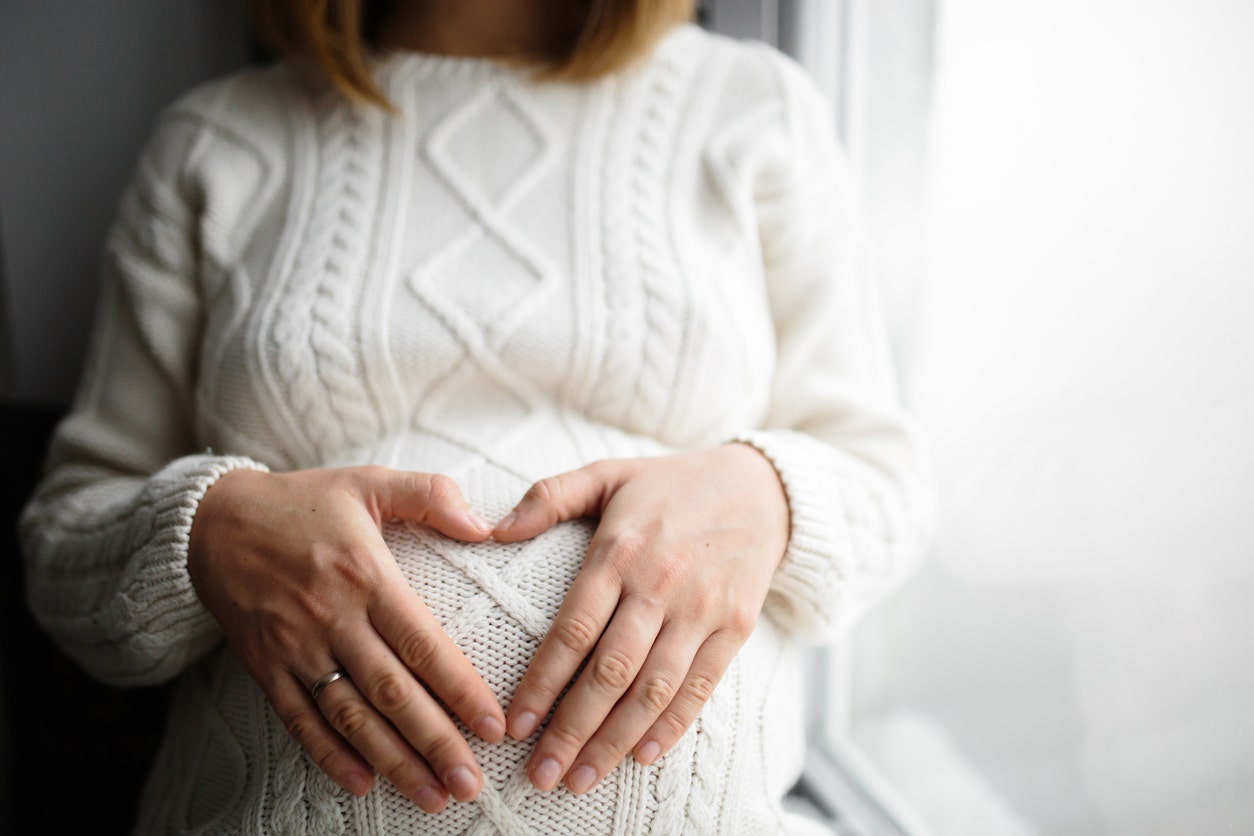
The findings of a new study support a growing body of evidence to suggest that pregnant women who contract the new coronavirus pass protective antibodies to their newborns.
A study conducted by researchers at the Perelman School of Medicine at the University of Pennsylvania found that antibodies to SARS-CoV-2, the scientific name for the virus that causes COVID-19, can cross the placenta – even if the mother is only asymptomatic. exposure to the virus. In addition, the researchers said that the concentration of antibodies in the newborns’ blood was comparable to the concentration in their mother’s blood.

Interestingly, the researchers also found that women who were infected with the new virus earlier in their pregnancy passed even more antibodies to their fetus compared to those infected later. (iStock)
(iStock)
Interestingly, the researchers also found that women who were infected with the new virus earlier in their pregnancy passed even more antibodies to their fetus compared to those who were later infected.
The study, published in JAMA Pediatrics, could help clarify when pregnant women should receive the COVID-19 vaccine, the researchers said.
PREGNANT WOMEN WITH CORONAVIRUS AT HIGHER RISK OF SERIOUS DISEASE, DEATH, CDC FINDES
“Overall, our findings are consistent with what we know about the transmission of antibodies to other viruses through the placenta and should contribute to the discussion of whether or not to vaccinate pregnant women against SARS-CoV-2,” said senior co-author Scott Hensley, Ph.D., in a statement. Hensley is also an associate professor of Microbiology at Penn Medicine and a member of the Penn Institute for Immunology.
To arrive at these results, the researchers are looking for evidence of antibodies in blood samples from more than 1,400 women and their newborns. They found that 83 women had “significant levels” of SARS-CoV-2 antibodies, with 87% of these women’s neonates also showing significant levels of these antibodies in blood samples taken from the umbilical cord when they were born.
“The study found no evidence that the antibodies were the result of a fetal infection, indicating that the antibodies are likely to cross the placenta from the mother’s blood to the fetal circulation,” reads a press release detailing the findings.
Immunoglobulin G (IgG) antibodies – the most abundant class of antibodies in the blood – appeared to cross the placenta “easily”, with levels of these specific antibodies in newborns being comparable to their mothers.
“A class of larger antibodies, known as IgM antibodies, which are usually produced earlier in an infection and are not known to cross the placenta, were not found in any umbilical cord blood sample,” noted the researchers. “Since infants have some ability to produce their own IgM antibodies, the absence of these antibodies also suggested that the SARS-CoV-2 virus itself had not crossed the placenta and infected them.”
“This transfer appears to be quite efficient. In some cases, the blood concentration of SARS-CoV-2 antibodies in the newborn was even higher than that of the mother,” said Karen Puopolo, MD, Ph.D., co-senior investigator . a neonatologist at Children’s Hospital in Philadelphia, an associate professor of pediatrics at the University of Pennsylvania Perelman School of Medicine and chief of the newborn medicine section at Pennsylvania Hospital, said in a statement.
The team’s findings support past evidence that pregnant women can pass protective antibodies to the virus to the fetuses. In December, a study from Singapore found that five babies born to mothers who had received COVID-19 while pregnant were born with antibodies to the coronavirus.
Still, studies looking at the effects of COVID-19 on pregnant women and their babies are underway, with a recently published National Institutes of Health-funded study suggesting that pregnant women who develop severe COVID-19 disease have an increased are at risk of death and premature birth compared to people with asymptomatic cases of the disease. These findings fostered similar conclusions from researchers at the Centers for Disease Control and Prevention (CDC) in November.
CLICK HERE FOR A COMPLETE CORONAVIRUS COVERAGE
The CDC and the World Health Organization both recommend that pregnant women should get a COVID-19 vaccine, the latter recently reversing its stance on this ongoing debate.
Although neither the Moderna vaccine nor the vaccine made by Pfizer-BioNTech has been specifically approved for use in pregnant women, no safety concerns were demonstrated in rats that [the] Moderna COVID-19 vaccine before or during pregnancy, “the CDC notes on its website, adding that” studies of the Pfizer-BioNTech vaccine are underway. “